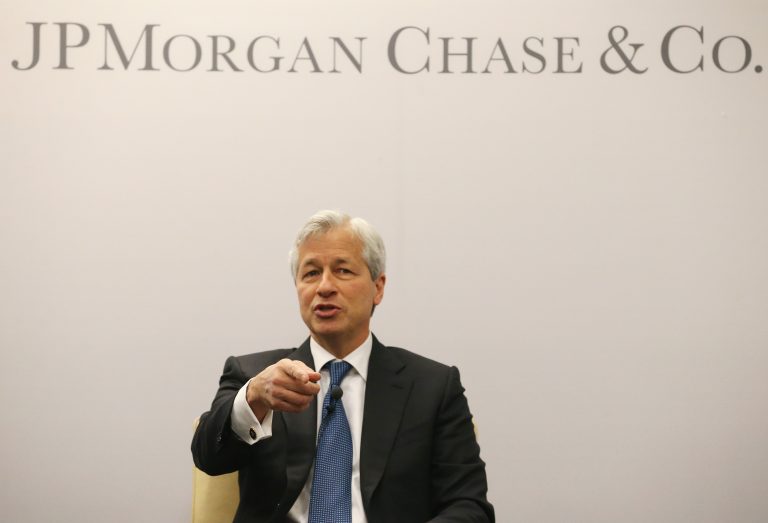
JPMorgan CEO Jamie Dimon is embracing the transformative potential of artificial intelligence (AI), countering fears about its negative implications for humanity.
In a Bloomberg TV interview, Dimon discussed how AI could revolutionize work-life balance, productivity, and longevity, even as it presents significant challenges and risks. Dimon suggested that future generations could work a reduced three-and-a-half-day workweek and live significantly longer, potentially reaching 100 years of age, thanks to advancements in AI.
Dimon explained that AI, already in use by thousands of JPMorgan employees, is helping automate tasks across various functions, including error detection, trading, research, and hedging. Highlighting AI as a “living, breathing thing,” Dimon stressed its dynamic nature and long-term transformative power.
Register for Tekedia Mini-MBA edition 19 (Feb 9 – May 2, 2026): big discounts for early bird.
Tekedia AI in Business Masterclass opens registrations.
Join Tekedia Capital Syndicate and co-invest in great global startups.
Register for Tekedia AI Lab: From Technical Design to Deployment (next edition begins Jan 24 2026).
He dismissed doomsday predictions: “Technology has always replaced jobs… Your children are going to live to 100 and not have cancer because of technology, and literally they’ll probably be working three and a half days a week,” he said.
Dimon’s prediction aligns with findings from a 2022 McKinsey report that estimated generative AI and other technologies could automate tasks that take up 60% to 70% of employees’ time. This automation could contribute between $2.6 trillion and $4.4 trillion annually to the global economy. The reduced burden of repetitive tasks could lead to shorter workweeks while maintaining productivity.
A real-world example comes from the University of Cambridge, which studied the impact of a four-day workweek on 61 organizations. The study found a 65% reduction in sick days, decreased burnout, and overwhelmingly positive feedback, with 92% of participating companies deciding to retain the shorter work schedule. These findings reinforce Dimon’s vision of AI enabling significant improvements in work-life balance.
Managing Job Displacement
Dimon acknowledged the fears of job loss associated with AI. A Goldman Sachs report estimates that AI could displace 300 million jobs worldwide, with about a quarter of the American workforce at risk. Dimon, however, emphasized JPMorgan’s commitment to mitigating these effects through “redeployment.”
Drawing on JPMorgan’s acquisition of First Republic Bank in 2023, he noted that 90% of the acquired workforce was retained despite transitional roles.
“At First Republic we’ve offered jobs to 90% of people. They accepted, but we also told them some of those jobs are transitory. But we hire 30,000 people a year, so we expect to be able to get them a job somewhere local in a different branch or a different function if we can do that,” Dimon explained. “We’ll be doing that with any dislocation that takes place as a result of AI.”
Addressing the Risks of AI
“Technology has done unbelievable things for mankind, but, you know, planes crash, pharmaceuticals get misused—there are negatives,” he said. Dimon called for regulatory “guardrails” to ensure AI is used responsibly, echoing concerns raised by tech leaders like OpenAI CEO Sam Altman and Apple co-founder Steve Wozniak.
“This one, the biggest negative in my view, is AI being used by bad people to do bad things. Think of cyber warfare,” he said.
The risks of AI misuse are especially pressing in cybersecurity. Malicious actors could leverage AI to conduct sophisticated cyberattacks, posing risks to global security and stability. Dimon emphasized the importance of collaboration between industry leaders and governments to develop effective regulations, even though such frameworks may take time due to the novelty of the technology.
AI’s Broader Economic Impact
Dimon also highlighted AI’s potential to revolutionize industries by reducing costs and enhancing efficiency. For example, McKinsey’s report underscored how automation could unlock billions of dollars in value by streamlining operations across sectors. However, Dimon noted that society must adapt to the disruptions caused by technological advancements.
“People have to take a deep breath,” Dimon said. “Technology has always replaced jobs. Your children are going to live to 100 and not have cancer because of technology, and literally they’ll probably be working three and a half days a week.”
A Historical Perspective
Dimon’s projections echo earlier predictions by renowned economist John Maynard Keynes, who in 1930 envisioned a 15-hour workweek due to technological advancements. While this vision has yet to materialize—the current average workweek in the UK is 36.4 hours—AI’s rapid development brings society closer to realizing Keynes’s predictions.
As AI continues to evolve, its impact on industries, work culture, and society at large will be profound. For Dimon and JPMorgan, the focus remains on leveraging AI to enhance productivity, improve employee well-being, and create sustainable opportunities.




we have to fix pc’s as it is daily. Is there insights into improving current trends?